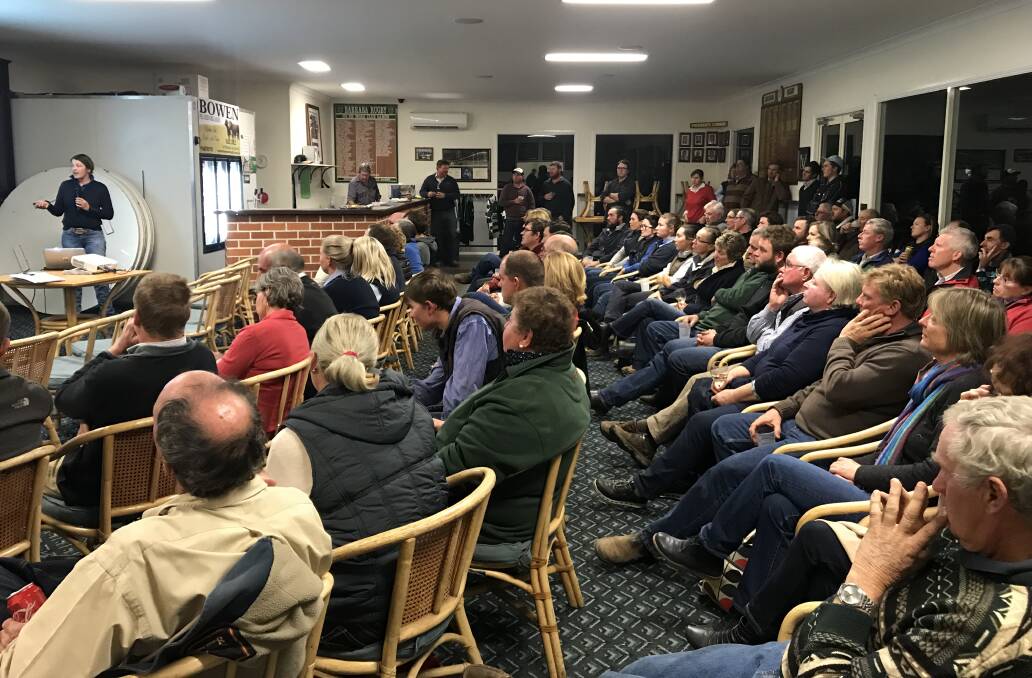
A drought workshop held in Barraba has drawn almost 100 people “looking for answers” as the dry weather wears on and the cold hits.
Subscribe now for unlimited access.
or signup to continue reading
Organiser Charlie Hart of Hart Rural Agencies said this was almost double the numbers expected, packing out the rugby club venue.
“Unfortunately we’ve fallen down a very slippery slope in the last three or four weeks,” he said.
“Not only have we got very dry countryside, but we’ve got cold weather coming in and the requirements for livestock have changed very quickly.”
Read also:
Mr Hart said his business – a livestock, rural real estate and ag merchandise sales agency – hosted the workshop as “a way for us to try and help people make good decisions”.
He said the attendees’ main concerns were the quality and quantity of feed their livestock, particularly cattle, would need through winter and calving.
The speakers were North West Local Land Services livestock officer Sally Balmain, local vet Ben Gardiner, agronomist Andrew Jack and Mr Hart.
“There were a lot of questions around feed budgeting and … around marketing livestock in regards to what do you sell, what do you keep?” he said.
“The availability of fodder is a problem; the distance you’re trucking it from is a problem.
“That and the length of the feeding period: are we going to be feeding through the spring? At this stage it looks like we’re going to be feeding through the winter, at least.”
The evening featured lucky door prizes of two $500 Ridley Stockfeed vouchers, some spraying vouchers, and an NAB Agribusiness-sponsored barbecue.
Mr Hart said the guests had hung around afterwards to enjoy dinner and the company of their fellow farmers.
Another attendee said: “I don’t know what they needed more – the information or just the night out.”
‘Caught short’
Mr Hart said he was seeing two types of people: those who didn’t preserve fodder, preferring to sell rather than feed livestock; and those who did.
“[The former] have probably been a bit caught short; those guys have now got no fodder and the markets have changed a bit,” he said.
“The blokes who have conserved fodder, put it away, they’re in reasonable shape, but a lot of them don’t have enough.
“They didn’t expect it to be so dramatic ...
“The amount of feed you have to feed when you start is frightening everyone.
“You think you’re right but you start feeding four, five, six hundred cows, you’re talking tons and tons every week.”


